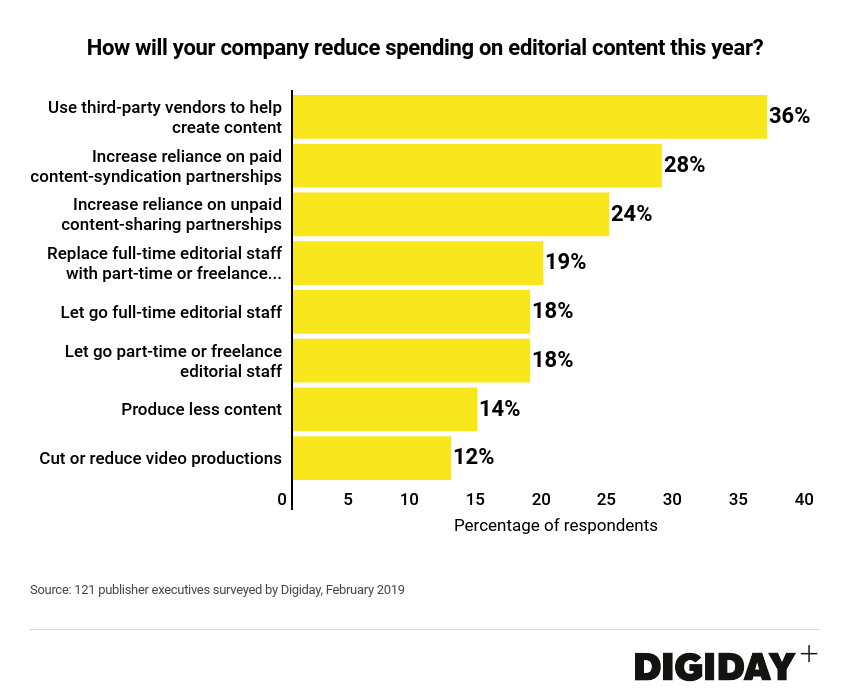Secure your place at the Digiday Publishing Summit in Vail, March 23-25
Digiday Research: Publishers look to technology to help keep down editorial costs
This research is based on unique data collected from our proprietary audience of publisher, agency, brand and tech insiders. It’s available to Digiday+ members. More from the series →
Publishers are turning technologies like artificial intelligence and content-curation vendors to create content at lower costs. Thirty-six percent of the 121 publishers surveyed by Digiday this month that are trying to costs said they are turning to vendors and AI tech.
Syndication and licensing from other publishers was also a common choice. Twenty-eight percent of publishers said they would rely more on paid content sharing agreements with other publishers, and 24 percent would utilize more unpaid content partnerships.
The Associated Press used an AI product to help write articles covering quarterly reports and sports that increased the amount of content it created by 1200 percent while saving reporters 20 percent of their time. Using AI in the newsroom “is not about shedding humans jobs. We think of AI as complementary to our editorial teams,” said Jeremy Gilbert, director of digital strategies at the Washington Post.

Gilbert said that Heliograf, the Washington Post’s technology, saved staff time by analyzing polling results in battleground states during the midterm elections.
Content licensing and syndication deals with other publishers offer publishers an alternative strategy. Publishers receiving content can use that content to fill gaps in their coverage areas. As publishers work to increase the amount of content they produce to meet consumer demands, licensing and syndicating content can be an effective strategy to help meet that demand. But publishers are not limited to working just publishers. Though online portals like Yahoo and MSN are becoming less important syndication partners, platforms like Facebook are picking up some of the slack.
More in Media

How creator talent agencies are evolving into multi-platform operators
The legacy agency model is being re-built from the ground up to better serve the maturing creator economy – here’s what that looks like.

Why more brands are rethinking influencer marketing with gamified micro-creator programs
Brands like Urban Outfitters and American Eagle are embracing a new, micro-creator-focused approach to influencer marketing. Why now?

WTF is pay per ‘demonstrated’ value in AI content licensing?
Publishers and tech companies are developing a “pay by demonstrated value” model in AI content licensing that ties compensation to usage.





